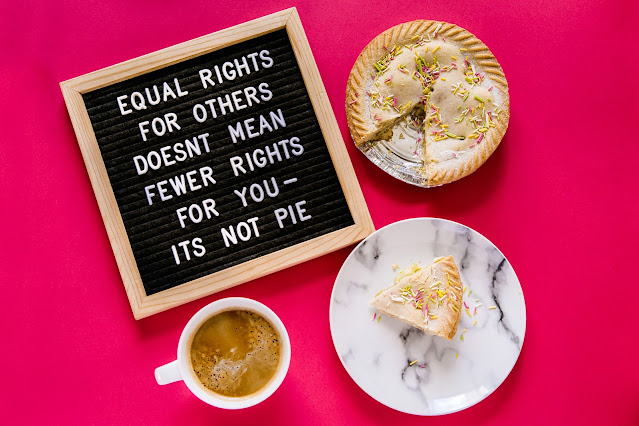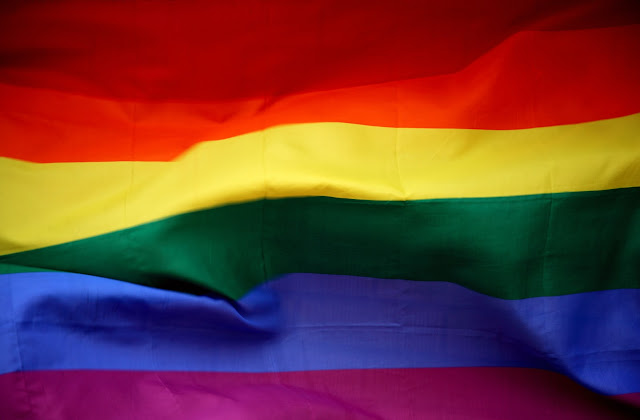Breaking of Invisible Minorities
Research and analysis to understand the role of race in Harvard's admissions decisions by Professor Peter Arcidiacono, a Duke University economist, was presented and used in the Students for Fair Admissions, Inc. v. President and Fellows of Harvard College. His analysis utilizing econometric and statistical methods concluded the applicant's race played a significant role in admissions decisions. According to Professor Arcidiacono, if an Asian-American applicant with certain characteristics such as scores, GPAs, and extracurricular activities would result in a 25% statistical likelihood of admission, the same applicant, if white, will have a 36% likelihood of admission. Latino applicants with the same factors will have a 77% predicted chance of admission. Black applicants with the same factors will have a 95% likelihood of admission based on the admission selection practiced by Harvard with Affirmative Action.
 |
| Photo by That's Her Business on Unsplash |
He also projected that Asian-American admits to Harvard would increase more than 46% over six years if the university were to remove racial and ethnic admission preference for Blacks and Latinos while also removing penalties for Asian-Americans. Harvard has a history of denying qualified applicants admission when a minority group becomes a strong presence on their campus. Brief Amicus Curiae of the Louis D. Brandeis Center for Human Rights under Law and the Silicon Valley Chinese Association Foundation in support of Petitioner, Students for Fair Admissions, points out how qualified Asian-American applicants were denied admission are similar to the university's Jewish Quota from the 1920s to 1930s. Harvard artificially suppressed the number of Jewish student population by denying admission to qualified Jewish applicants as then Harvard's President, Mr. Abbott Lawrence Lowell, raised concern over the rising number of Jewish freshmen year-over-year.
Here we are. The Supreme Court ended Affirmative Action. As I shared on Instagram Story, I had mixed emotions when the news broke of the Supreme Court's decision. As a Korean-American, I felt vindicated that we cannot be discriminated against, fearful of an ambiguous future, and frustrated because both ends of the political spectrum seem clueless.
Former President Obama was right that Affirmative Action was not perfect. Mr. Jay Caspian Kang of The New Yorker put it the best... "The original concept in pursuit of diversity was vital and righteous. The way it was practiced was hard to defend." It wasn't a celebration for me, but the court's decision finally made Asians visible after having been made invisible for decades by courts and advocates of Affirmative Action.
It wasn't a celebration because the ending of Affirmative Action also means an ambiguous future for Blacks, Latinos, and Asians of this nation as universities have threatened to make college admissions criteria more subjective rather than objective. It is the perfect way for universities to continue selection based on legacy and financial affluence with profits in mind rather than qualifications as they have done while hiding behind Affirmative Action.
Affirmative Action has been an irritating topic for me for years now. I have read articles, statistics, and editorial opinions to try to see from the other side and calm my irritation. Honestly, I don't see how it is okay to sacrifice Asians for Blacks and Latinos. Why doesn't the Woke Culture in advocating rights, equality and diversity include Asians?
Is diversity that penalizes a group of minorities for the sake of others truly inclusive? We don't live in a perfect world. Forget outright discrimination and racism, we can't even escape unconscious bias. So, we need to minimize subjective measures for the sake of fairness, equality and inclusiveness for all and not just a select few. That means working to make meaningful changes to provide opportunities, tools, and resources for all children rather than telling them that they now have no chance of attending an elite university.
I'm going to end this with a mention and my thoughts on Professor Anne C. Bailey's, the Director of the Harriet Tubman Center for Freedom and Equality at Binghamton University, opinion published by Newsweek. In her defense of Harvard University, a school she attended, she shared that "you never knew who you were going to meet: the kid from Montana who was brilliant at carpentry but had also read every Shakespearean play; the engineer in the making who was already inventing things; the organic farmer who was committed to sustainable farming long before it was fashionable; the virtuoso violinist from inner-city Chicago; the Christian missionary who had lived and worked in China; the lawyer in the making who was already arguing cases in the cafeteria.
It was such a beautiful mix, and the more so because Harvard Admissions had defied the typical expectations and not just chosen those with highest scores and GPAs. Instead, from their perspective, they had found a treasure trove of original folk uniquely qualified to make contributions to the world and to each other."
There are 5.2 million Chinese, 2.3 million Vietnamese, 2 million Korean, and 1.6 million Japanese descent to name a few in the United States according to the 2021 U.S. Census. Of all of us, I can assure you that there are those of us with originality and unique qualifications to make contributions to the world and each other. Just because we happen to be Asians with high scores and GPAs, it doesn't mean that we cannot be the one from Montana with brilliant carpentry skills and have read every Shakespearean play; the engineer in the making who is inventing things; the organic farmer who wants to make farming sustainable; the virtuoso violinist from the inner-city Chicago; the Christian missionary who lived and worked in China, the lawyer in the making already arguing cases in the cafeteria. Asian-Americans should neither be denied entry to nor made invisible in the treasure trove.




Comments
Post a Comment